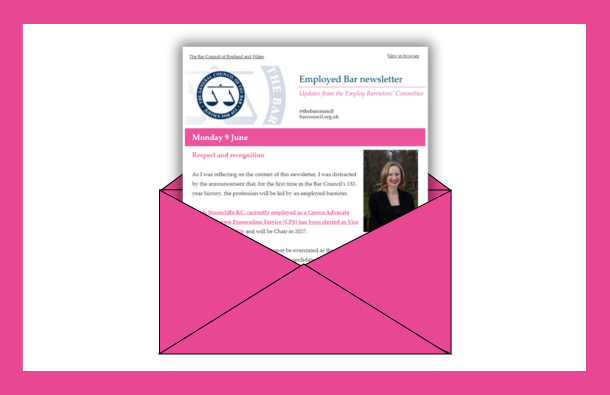On this page:
- How we support you
- Employed barristers’ committee, chair and vice chair
- Life at the employed Bar report
- Employed Bar Awards
- Resources
- Frequently asked questions
How we support you
We’re committed to supporting employed barristers in your practice and working lives. We offer:
- Advocacy and representation: We represent your interests, as an employed barrister, in negotiations with government, regulators, and other stakeholders to ensure your concerns and needs are heard.
- Career development support: Through workshops, seminars, and resources, we provide career development opportunities tailored to the unique challenges you experience as an employed barrister.
- Ethical guidance: You can access ethical guidance on issues specific to your work environment, including conflicts of interest and regulatory obligations.
- Training opportunities: We offer training tailored to you, helping you stay compliant with regulatory requirements and improve your professional skills.
- Wellbeing and support: Mental health and wellbeing services are available to ensure you feel supported in your practice. We have several resources that address the specific nuances of employed practice.
- Networking and community: We provide opportunities for you to connect, share experiences, and access support. The employed barristers’ committee is the cornerstone of this network and ensure that your voice is represented.














